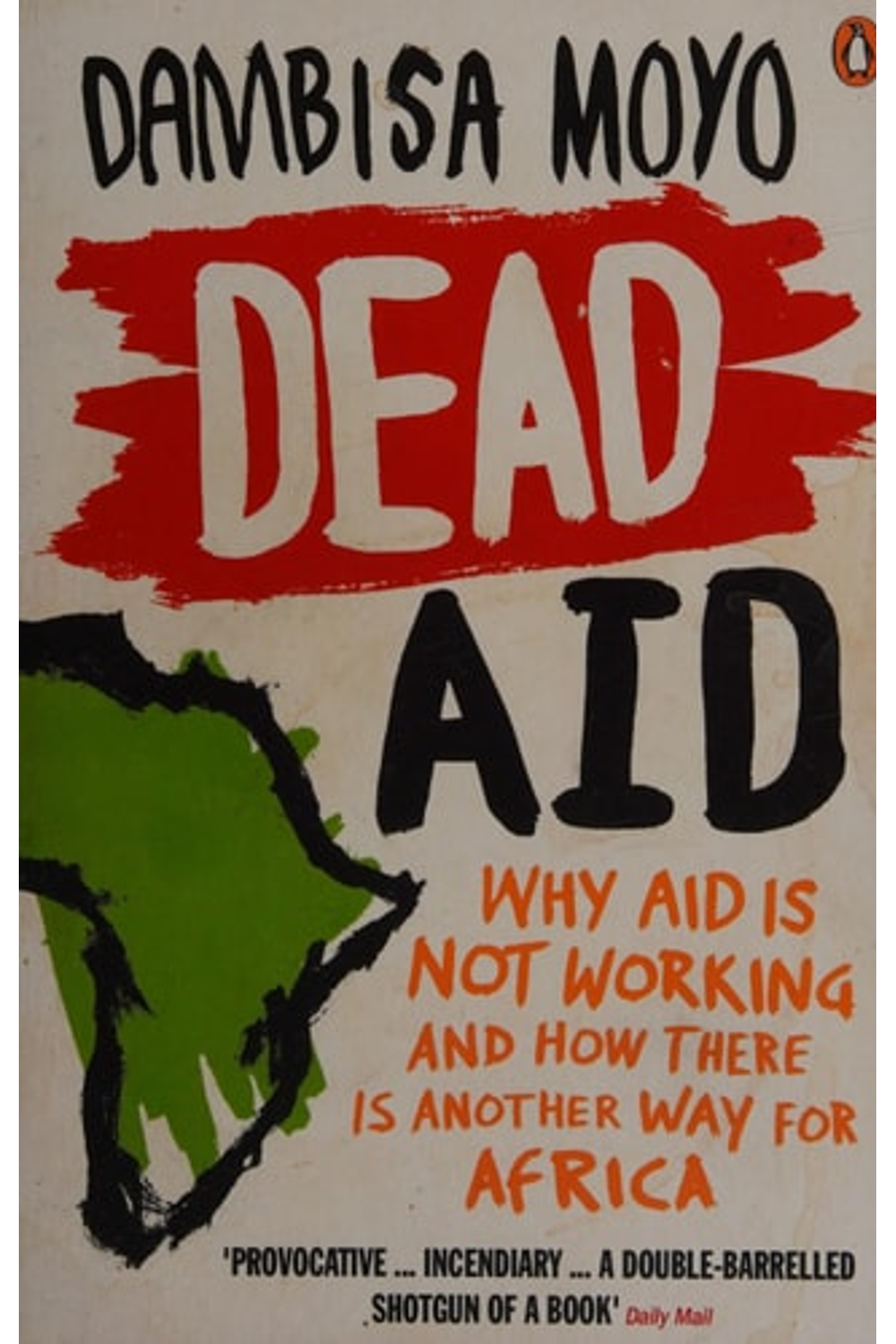Dambisa Moyo’s “Dead Aid” ignites a crucial debate: Is well-intentioned Western aid actually crippling Africa? This provocative bestseller challenges the dominant narrative, arguing that decades of aid have fostered dependency, corruption, and hindered true economic growth. Moyo, a Zambian-born economist, doesn’t just criticize; she offers a bold vision for Africa’s future, advocating for market-based solutions, foreign investment, and accountable governance. Discover why “Dead Aid” sparked global controversy and remains essential reading for anyone seeking a deeper understanding of Africa’s development challenges and pathways to prosperity. Published by Penguin Books, this powerful paperback presents a controversial alternative vision for a self-sufficient Africa.
Dead Aid: Why Aid Makes Things Worse and How There Is Another Way for Africa
16,39 $
In stock
Description
We all want to help. Over the past fifty years $1 trillion of aid has flowed from Western governments to Africa, with rock stars and actors campaigning for more. But this has not helped Africa. It has ruined it. Dambisa Moyo’s excoriating and controversial book reveals why millions are actually poorer because of aid, unable to escape corruption and reduced, in the West’s eyes, to a childlike state of beggary. “Dead Aid” shows us another way. Using hard evidence to illustrate her case, Moyo shows how, with access to capital and with the right policies, even the poorest nations can turn themselves around. First we must destroy the myth that aid works – and make charity history.
**Dead Aid: A Controversial Analysis of Aid Dependency in Africa - By Dambisa Moyo** For over half a century, Western nations have poured over $1 trillion in aid into Africa, fueled by good intentions and celebrity-backed campaigns. But what if this seemingly benevolent gesture is actually hindering the continent's progress? In "Dead Aid: Why Aid Makes Things Worse and How There Is Another Way for Africa," renowned economist Dambisa Moyo presents a powerful and provocative argument that traditional aid models are not only ineffective but actively detrimental to African nations. Moyo challenges the conventional wisdom that aid is a necessary lifeline for impoverished countries. Drawing upon extensive research and real-world examples, she meticulously dismantles the myth that aid fosters sustainable development. Instead, she argues that it perpetuates a cycle of dependency, corruption, and ultimately, poverty. By creating a culture of reliance on foreign handouts, aid discourages entrepreneurship, undermines local industries, and weakens governance. "Dead Aid" exposes how aid can distort markets, enabling corrupt leaders to divert resources and evade accountability to their citizens. Moyo highlights the unintended consequences of aid, such as the erosion of national sovereignty and the stifling of innovation. Her sharp critique offers a bracing dose of realism, forcing readers to confront the uncomfortable truth about the complexities of international development. But "Dead Aid" is not simply a critique; it's a call to action. Moyo offers a compelling alternative vision for Africa's future, one based on economic empowerment, free markets, and responsible governance. She advocates for policies that promote foreign direct investment, microfinance, and the development of local capital markets. By fostering a vibrant private sector and empowering entrepreneurs, African nations can unlock their potential for sustainable growth and prosperity. This groundbreaking book sparked a global debate about the effectiveness of aid and the future of Africa. Dambisa Moyo, a Zambian-born economist with degrees from American University, Harvard, and Oxford, brings a unique perspective to this critical issue. Her insights are informed by her firsthand experience of living and working in Africa, as well as her extensive knowledge of international finance and development. Often praised for her courage in challenging established norms, Moyo provides actionable solutions for achieving lasting economic independence. "Dead Aid" is a must-read for anyone interested in international development, African affairs, or the global economy. It is a thought-provoking and deeply insightful analysis that will challenge your assumptions about aid and inspire you to rethink the way we approach poverty alleviation. Prepare to be challenged, enlightened, and empowered to demand a better future for Africa. This paperback edition from Penguin Books, published in 2010, contains 208 pages of compelling arguments and is a valuable addition to any bookshelf. With an ISBN-13 of 9780141031187 and an ISBN-10 of 0141031182, ensure you get your copy to understand the complex issues surrounding international aid and the potential for a brighter future for Africa.
Additional information
| Authors | |
|---|---|
| Binding | |
| Condition | |
| ISBN-10 | 0141031182 |
| ISBN-13 | 9780141031187 |
| Language | |
| Pages | 208 |
| Publisher | |
| Year published | |
| Weight | 157 |
SKU: G-9780141031187-3
Categories: Africa, Economic assistance, Economic Conditions, Economic development, Poor, social aspects
Related products
Living History: A Memoir
14,41 $
- Additional information
- Currencies
- USD – United States dollar
- EUR – Euro
- GBP – Pound sterling
- CNY – Chinese yuan
- BRL – Brazilian real
- MXN – Mexican peso
- JPY – Japanese yen
- PHP – Philippine peso
- THB – Thai baht
- PLN – Polish złoty
- CAD – Canadian dollar
- MYR – Malaysian ringgit
- AUD – Australian dollar
- TWD – New Taiwan dollar
- CZK – Czech koruna
- SEK – Swedish krona
- HUF – Hungarian forint
- ILS – Israeli new shekel
- CHF – Swiss franc
- HKD – Hong Kong dollar
- DKK – Danish krone
- SGD – Singapore dollar
- NOK – Norwegian krone
- NZD – New Zealand dollar





